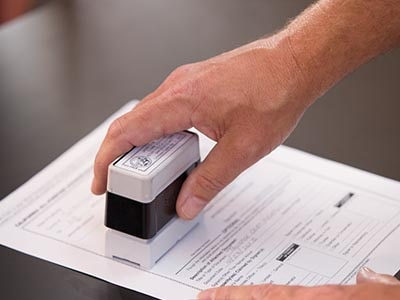Managing Deceased Estate Matters: Advice Through Legal Process
Managing Deceased Estate Matters: Advice Through Legal Process
Blog Article
Debunking Notarial Job: Simplifying the Function and Importance of Notaries
Their duty, usually shrouded in mystery for many, brings substantial weight in guaranteeing the legitimacy and honesty of important files. By unwinding the intricacies dropping and bordering notarial practices light on the importance of their acts, a clearer understanding emerges of the vital function notaries play in promoting the textile of legal and contractual contracts.
The History of Notarial Work
Just how did notarial job advance with time to end up being an important component of lawful and company transactions? The background of notarial work go back to ancient human beings, where scribes played an important role in tape-recording important information and verifying documents. As cultures advanced, the demand for a much more formalized system to make certain the credibility of agreements occurred. This caused the advancement of notaries, people appointed by the state to serve as impartial witnesses in lawful matters.
Throughout the Center Ages, notaries acquired prominence in Europe, with their features increasing to include preparing legal records, accrediting trademarks, and preserving documents. The rise of global profession additionally stressed the relevance of notarial operate in validating agreements and arrangements across borders.
In the modern era, notaries remain to play a vital function in legal and organization purchases by validating identifications, confirming the credibility of files, and protecting against fraudulence. Their duty in certifying the credibility of arrangements includes a layer of protection and depend on to the ever-evolving landscape of commerce and law.

Duties and Duties of Notaries
Notaries play a crucial duty in validating the authenticity of documents and the identification of signatories. One of their main obligations is to witness the finalizing of essential files, such as contracts, deeds, and wills, to ensure that all celebrations are entering into arrangements purposefully and voluntarily.
Furthermore, notaries are entrusted with carrying out affirmations and oaths, which are critical in lawful procedures and the execution of affidavits. They certify duplicates of initial records, offering guarantee to organizations that the copies are real replicas of the originals. Notaries need to maintain precise records of all deals they supervise to guarantee transparency and accountability. Generally, the tasks and obligations of notaries are important in safeguarding the honesty and legitimacy of different records and purchases.
Notarial Certificates and Signatures
Exhibiting thorough interest to information, notarial certificates and trademarks act as necessary components in verifying the credibility of legal documents. Notarial certificates generally include important details such as the day of notarization, the names of the notaries, a summary of the record, and the notary's main seal. These certifications supply a clear record of the notarial act, making certain that the paper can Click This Link be easily recognized and go right here mapped back to the notary that looked after the process.
Trademarks play a critical duty in notarial job, as they indicate the arrangement and approval of the events involved. Notaries carefully witness the finalizing of records to confirm the identification of the signatures and confirm that they are signing of their own free choice. By affixing their official seal and signature to the file, notaries accredit that the essential procedures have been adhered to which the paper is valid and enforceable.
Essentially, notarial certificates and signatures are the hallmark of authenticity in lawful transactions, giving assurance to all parties involved that the files are legitimate and binding.
Significance of Notarial Acts

Registration Refine Described
Explaining the notarization process offers clarity on the crucial steps associated with validating lawful papers. The notarization process commonly begins with the individual offering the record to a notary public. The notary after that validates the endorser's identification through appropriate identification approaches. As soon as the identification is verified, the notary ensures that the specific authorizing the record does so willingly and without any browbeating.

Verdict

Notarial certificates usually have critical details such as the day of notarization, the names of the notaries, a summary of the document, and the notary's main seal. These certificates give a clear record of the notarial act, making sure that the record can be easily recognized and mapped back to the notary who managed the process.
By affixing their official seal and trademark to the document, notaries certify that the necessary treatments have been followed and that the document is enforceable and valid.
By validating the identification of the signatures, validating their desire to enter into the arrangement, and accrediting the date and area of the signing, notaries play a vital function in promoting the legitimacy of legal papers.After the document is authorized, the notary will attach their official seal or stamp onto the document.
Report this page